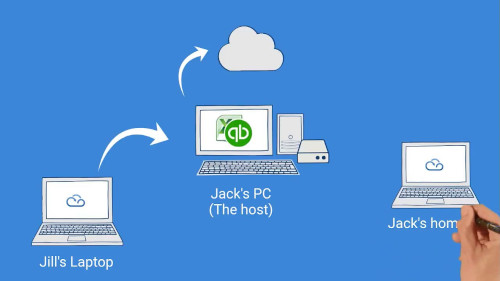Over the past few months, the world has continued to experience catastrophic effects of COVID-19. Unless you’re operating from Mars, if you’ve not been infected you’ve been affected. Businesses regardless of the size, capital, and location have felt the shift in the world economy. The livelihood of small business owners and entrepreneurs has been disrupted in unimaginable ways.
A recent study by Goldman Sachs showed that 50% of SMB owners don’t think they can keep their operations running for the next three months. They are putting blood, sweat, and tears into their businesses just to stay afloat. Events have been cancelled left, right, and center, more people are being infected, and work-from-home is still being encouraged to combat the spread of the virus.
Small businesses have taken the hit from the government and public health guidelines and they’re losing both clients and staff in the same measure. As if that’s not enough, global uncertainty continues to loom as COVID-19 appears to be going nowhere soon.
Today, we’ll look at the challenges facing small businesses and how to tackle them.
1. Moving businesses online
In cases of such economic uncertainty, quick thinking is called for to ensure business continuity. Most business owners have faced ‘analysis paralyses’ where they can’t make decisions thanks to overthinking. Delay only leads to more problems meaning more decisions to be made. An article by Forbes hits the nail on the head, “In the military, it doesn’t matter in which direction you choose to move when under a mortar attack, just so long as you move. Decisions are never final for the simple fact that change is never absolute.”
Taking the business online ensures employees have access to all work-related systems and assets through the internet at all times. The internet is the lifeline given to small businesses for them to remain afloat.
Currently, there are many cloud-based solutions to move business operations and assets online. Remote desktop and remote access solutions ensure employees have access to what they need to keep working regardless of their location. Going online makes the difference between businesses going under and staying afloat. For sure new channels won’t make up for lost income but they’ll ensure small businesses continue to operate.
2. Engaging remote employees
Most employees are experiencing remote work for the first time. And it’s not a planned shift but it’s more of a quick fix to ensure business continuity. In addition to the new working environment and systems, employees still have to deal with fear, anxiety, and hopelessness.
Time magazine has referred to these time as the ‘world’s largest work-from-home experiment. The management and employees who never practiced off-site work are hitting the ground running hoping to remain as productive as ever.
With this in mind small business owners need to help their remote employees remain engaged. They can take advantage of collaborative tools like Zoom, Teams, Slack, etc. to encourage team work and communication. Regular meetings should be held to establish guidelines and teleworking expectations.
Remote work isn’t a binary switch that can be turned on when you choose to. It’s a process and employee engagement is the only key to ensure your remote workers remain productive and loyal to the business.
3. Maintaining their customer base
With the current economic conditions, client demand for products and services has gone down. The purchasing power has reduced as people try to save as much as they can.
According to Facebook’s State of Small Businesses report, 31% of SMBs have shut down in the last three months. Two-thirds of them hope to reopen in future but their biggest concern remains paying their employees and the bills.
Small businesses now have to be highly responsive to their customer needs as the competition for the limited resources is high. To stand out from the pack, employees need to be able to access business apps and documents ASAP to cater to any customer queries. They can only close more deals by accessing the necessary tools regardless of their location. Cloud-based remote working solutions will come in hand in ensuring customer satisfaction and loyalty.
4. Maintaining the best workforce
Corona virus has made people value work flexibility than anything else. Employees prefer remote work positions over pay. For companies to hire and retain top talent, they have to offer their employees work flexibility.
Also, according to the Facebook Small Businesses report, 44% of SMBs have had to reduce their staff because of the current economic situation. In operating businesses, employees are still facing difficult financial circumstances. They are have had their finances cut due to fewer working hours. This pay cuts have made most employees seek for online jobs support themselves.
5. Data security
The massive shift from on-site to off-site work has seen an increase in cybercrime. Data breaches, hacks, identity fraud, are among the challenges small businesses are facing. Employees don’t have access to the same security firewalls they had in the office giving cybercriminal loopholes to access company data. And basic PC antiviruses don’t cut it when it comes to protecting company data.
However, cloud based services like MyQuickCloud provide you with an extra layer of protection as all company information remains in the cloud. There is a two-step verification when logging in and end-to-end data encryption that protects company data from potential threats.
The first priority for small business owners should be the safety and health of their employees. Then start making informed decisions once that is ensured.
Remote work has played a great role in ensuring safety of employees and business continuity. The beauty of it is you can implement remote desktop and remote access solutions without any investment in infrastructure.





